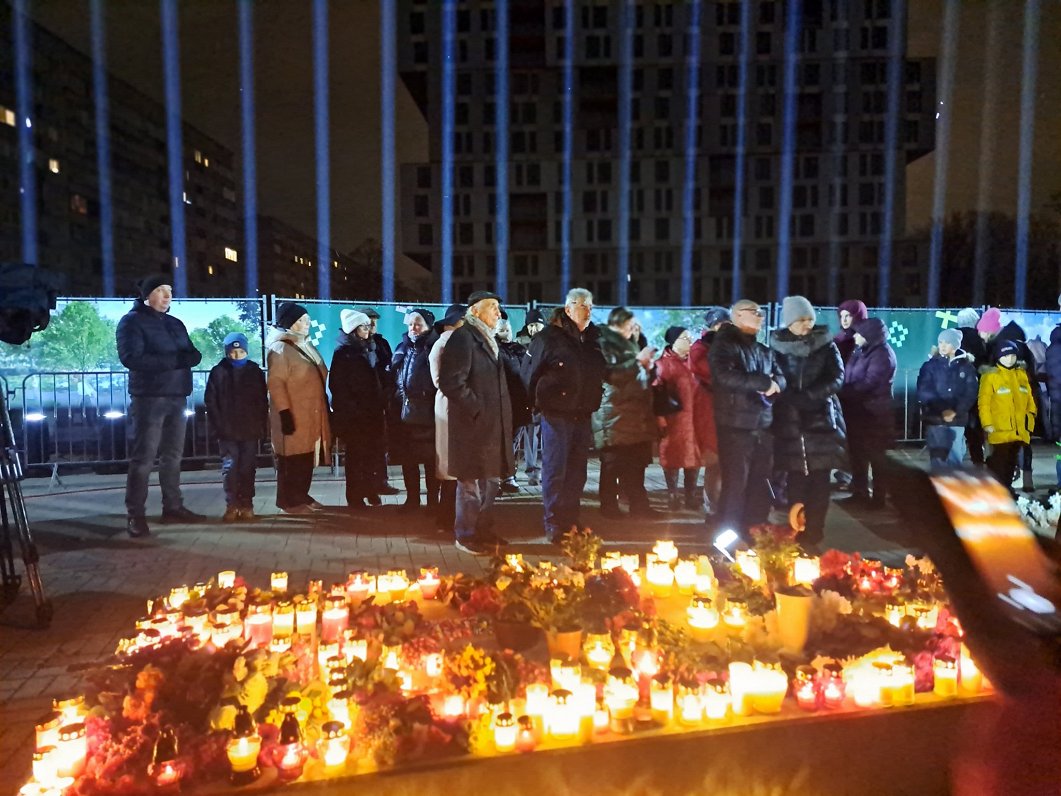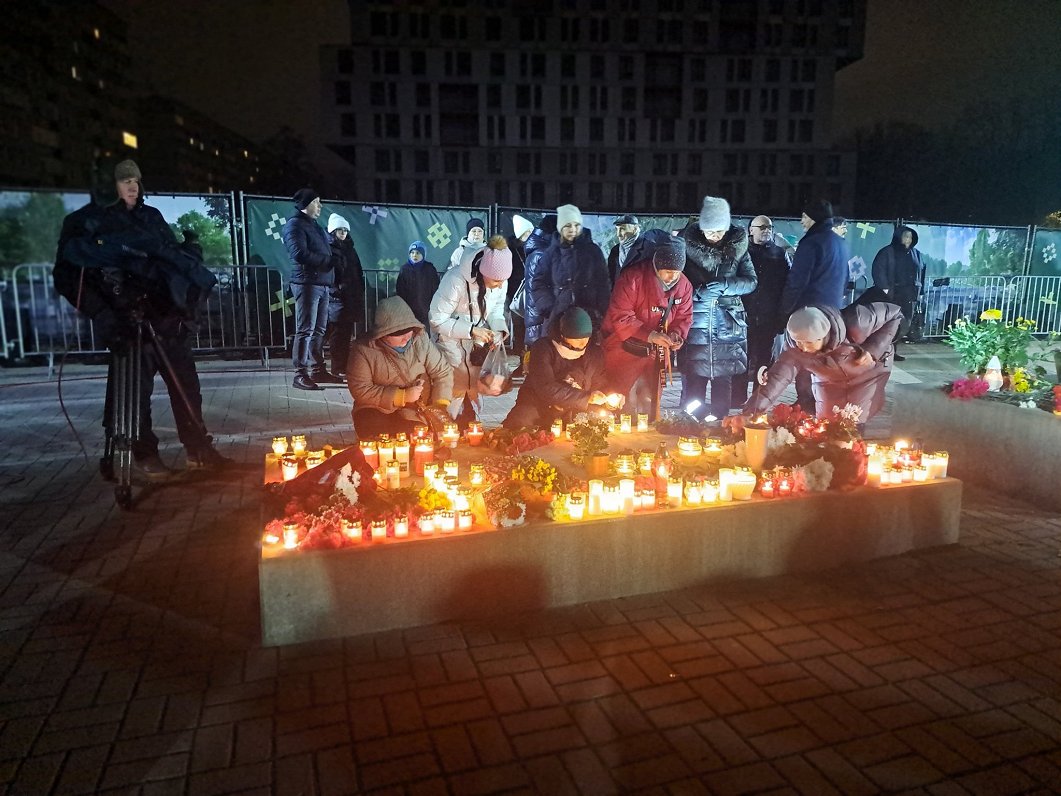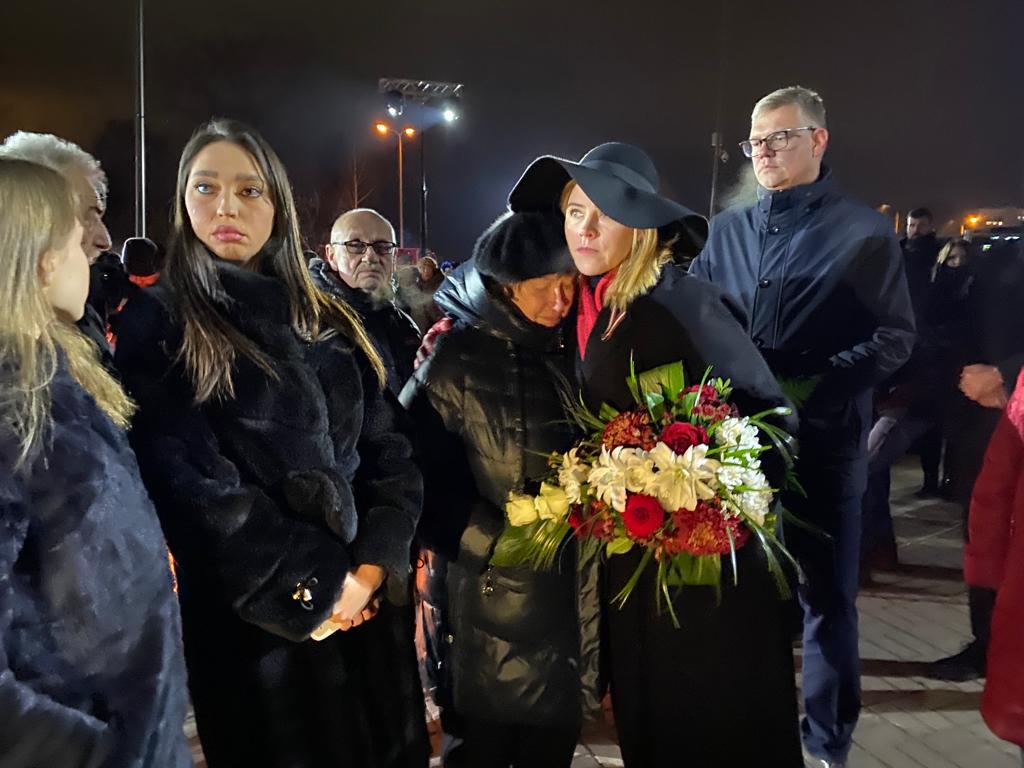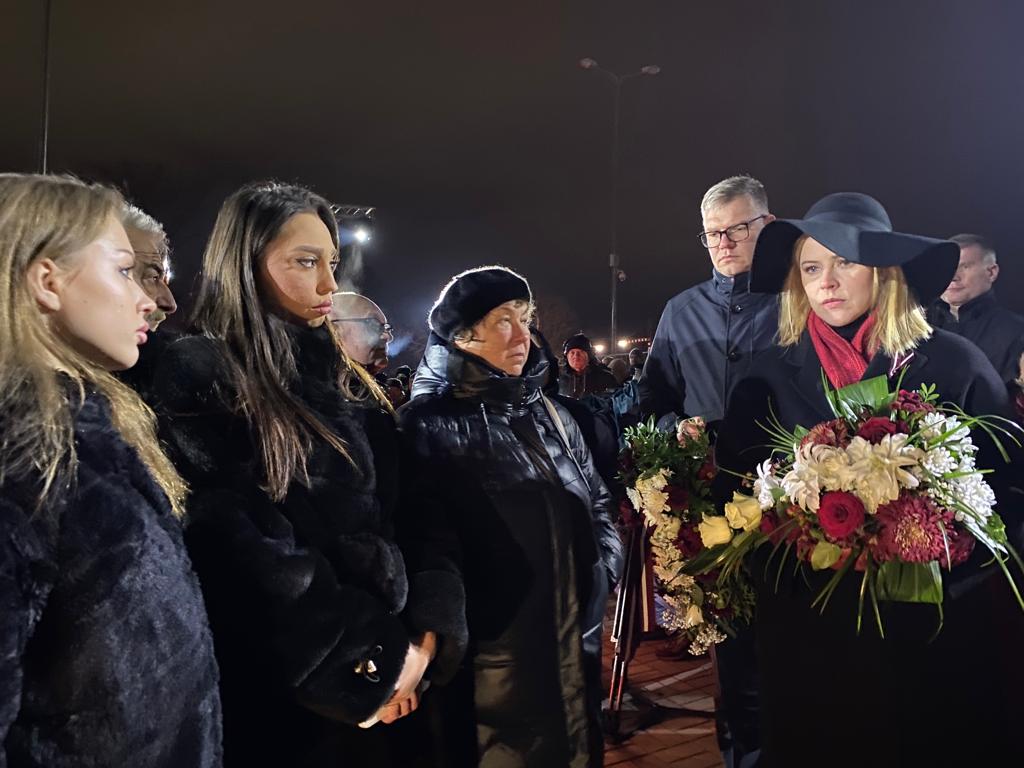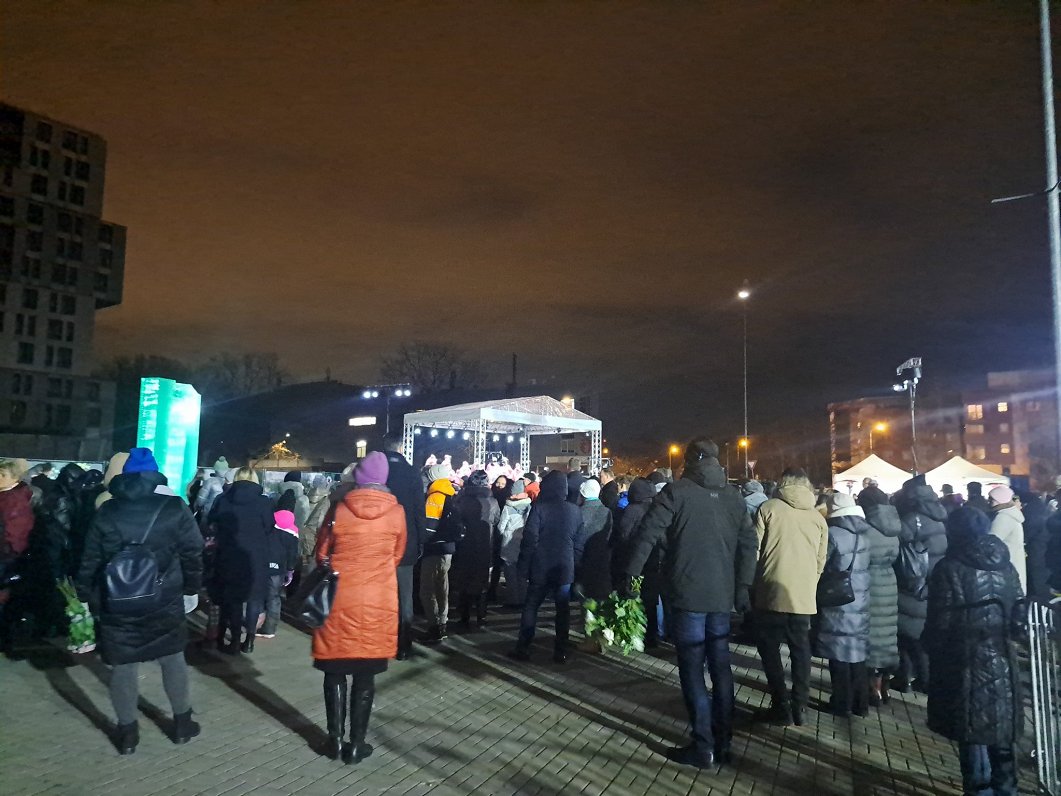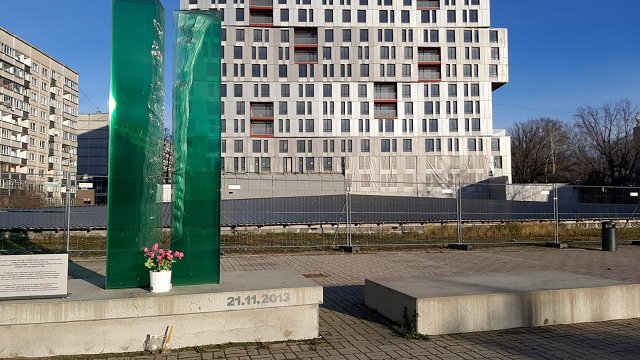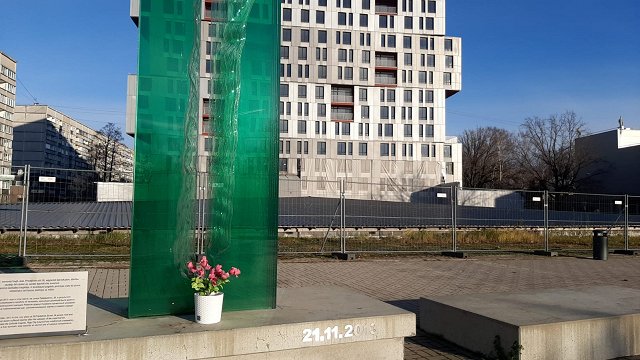For a decade since the Zolitude tragedy, victims and relatives of the deaths have been awaiting justice. The criminal case in the third court instance is still ongoing because what has been decided so far does not, in their view, ensure justice. Victims will never accept a court judgment blaming just one person for the lives lost, according to the victims' representative association.
At the foot of the temporary monument to the Zolitūde tragedy, flowers and candles were laid Tuesday night. For the hour-long Remembrance event, people gathered several hours before. Jānis Dundurs lost his wife Leonija Apsīte to the place.
“Normal day it was. I came home from work. Here the sirens began to howl. I started calling my wife. I came here to the shop and they let no one in. There was a fence around. I asked the guards if my wife's car was parked there. He looked, and the car was. Then I was immediately sure she was in the shop,” recalled Jānis Dundurs.
“I was in the shop. The roof collapsed, I called my friend Artūrs. He came and rescued me with the rescuers. After that, we got married. And now the baby is two. I have a broken back. My leg was squashed. I was under those blocks for two hours,“ Tatjana said.
Today, light rays were also lit in Zolitūde and, after a few years of not doing so, the names of the victims were read out loud. The dead rescuers are also remembered with sirens and lights.
Many of the victims declined an interview. Off-camera they said they were not satisfied with the court's ruling that, under the law at the time, only the building engineer, Ivars Sergets, could prevent the roof from collapsing by noticing disproportionate loads on the roof. According to the victims' society, the state is to blame for such negligence, which allowed a mistake made by one person to lead to tragedy. So what the courts have so far judged, according to the victims, is not fair.
The trial of the Zolitūde tragedy is still ongoing, and given the complexity of the case and extremely broad emotional resonance, judgments need to be clarified more and questions answered, the President of Latvia Edgars Rinkēvičs, who also attended the remembrance event, said.
He added that it was about both the rule of law and justice, and “right now, the factor of justice in conversations with victims we haven't heard, I can't comment on court sentences, but explanations must be provided.” Judges and prosecutors might have under-commented and explained their decisions so that “sometimes they think that if they wrote something in a judgment, said something in legal language, that's enough, but it's not enough,” the President said.
"This is a moment when fewer words and more silence are needed, but everyone must also ask whether everything has been done so that such tragedies don't happen again," the President said.
Prime Minister Evika Siliņa (New Unity) said in a conversation with LTV that as a politician she had no right to comment on court decisions, but when she met people 10 years later at this memorial, it's clear that its pain hasn't eased, there's still no court judgment, “now there are questions, I have questions too.”
In order to restore the trust of those affected by the tragedy in the court, fundamentally the court must be courageous, be able to interpret the laws, and sometimes come to lawmakers themselves, if it is the fault of lawmakers that the process dragged on.
Siliņa said that on that fateful day, she worked for the Interior Ministry and met the Fire and Rescue Service chief, who had a piece of paper in his hands with surnames and was crossing out who went in and who came out; “that feeling is impossible to forget many have not come out.”
Meanwhile, Mārtiņš Šics, then-head of the Disaster Medicine Center, who was criticized 10 years ago for making the names of those who died public, now admitted he would have done the same because it would have been "torturing people if you have information and you're not telling them.” He acknowledged that the legislation was now in order, and it was clear who and how to inform in such situations, but he expressed regret that at the time the names of the injured people and where they were at that time were not announced, and the families had to call seven hospitals.
